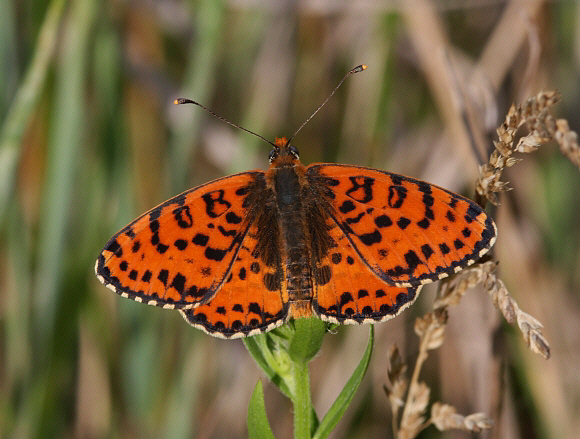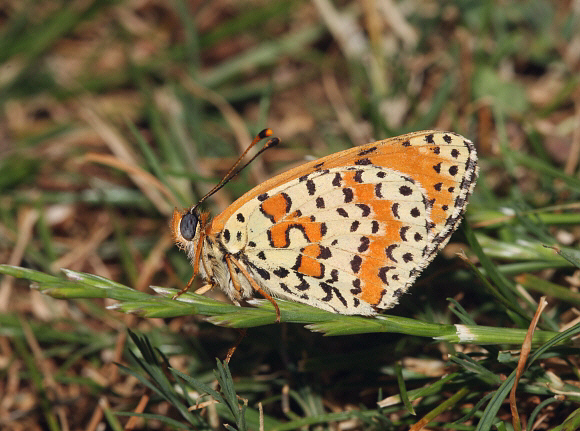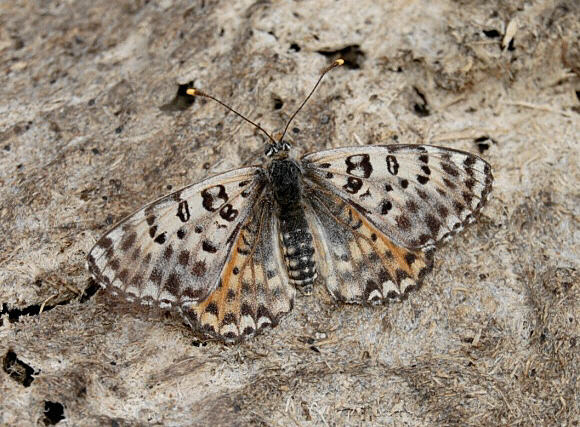 Spotted Fritillary Melitaea didyma, Aggtelek, Hungary – Peter Bruce-Jones
Spotted Fritillary Melitaea didyma, Aggtelek, Hungary – Peter Bruce-Jones
Introduction
The genus Melitaea comprises of about 70 small-medium sized butterflies – species which are only very distantly related the the larger Fritillaries such as Argynnis and Argyreus, which are members of the subfamily Heliconiinae.
Melitaea are distributed widely across the Palaearctic region from Portugal and Spain to Tibet, China and Japan. There are 8 European species, of which 4 extend their range into north Africa. A single species abyssinica is found in Ethiopia, but the genus is not represented south of the Sahara. The remaining species, i.e. the vast majority, are inhabitants of the temperate grasslands, woodlands and mountain valleys of central Asia.
Melitaea didyma occidentalis is found from Spain and north Africa to central Europe. Various other subspecies occur in the Urals, Volga, Pamirs, Tien Shan and Siberia.
 Spotted Fritillary Melitaea didyma, Tribanj, Croatia – Peter Bruce-Jones
Spotted Fritillary Melitaea didyma, Tribanj, Croatia – Peter Bruce-Jones
Habitats
This is a grassland / meadow species, found at altitudes between sea level and about 2000m.
Lifecycle
The larva is polyphagous, it’s foodplants including Plantago, Veronica, Viola, Scrophularia, Linaria, Dianthus and Phlomis.
Adult behaviour
Males commonly bask on bare ground, usually in sheltered hollows, where they wait to intercept passing females.
Both sexes visit a wide range of flowers for nectar, including hawkbit, thistles and knapweeds. If the weather is dry they roost overnight on the dead flower-heads of knapweeds, St Johns wort, plantain etc; but tuck themselves deep into grass tussocks when rain threatens.

Spotted Fritillary Melitaea didyma meridionalis, female, Bulgaria – Emily Halsey
